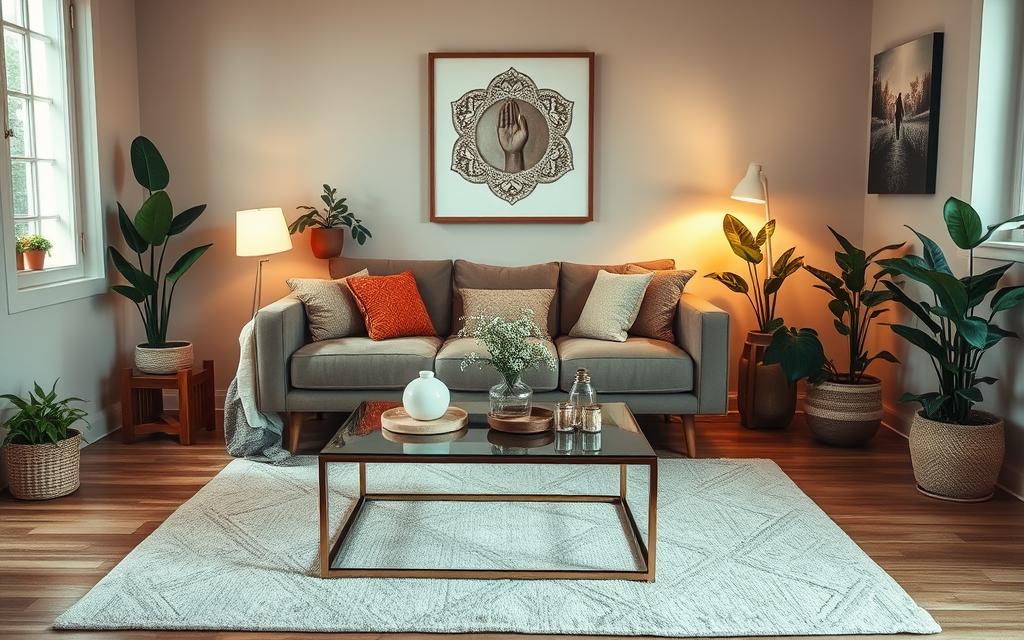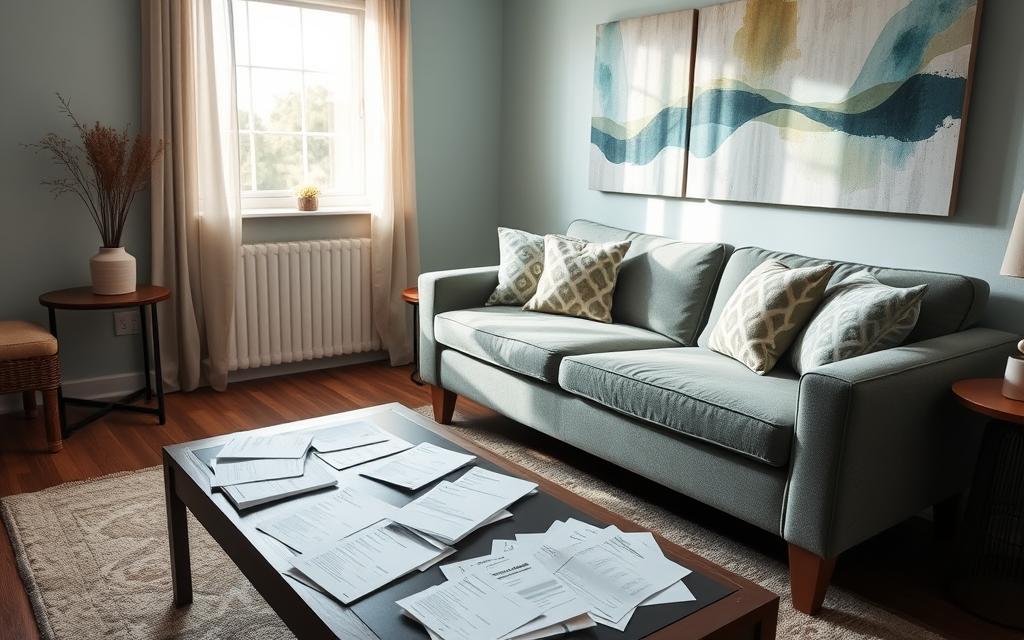Relationships can be tough to navigate, but you don’t have to go through it by yourself. When things start to fall apart, getting help can be the turning point. I’ve been there, and I know how therapy for relationship recovery can change everything.
If you’re dealing with trust issues, communication problems, or just want to connect deeper with your partner, a therapist can help. They offer the support and advice you need to face these challenges. With their help, you can find out what’s causing your problems and learn how to strengthen your relationship.
You’re not alone in this journey. Many people have found healing and support through seeking therapy for relationship recovery. They’ve regained their strength and found joy in real, meaningful relationships. So, take that first step, reach out, and start your journey to recovery.
Understanding the Need for Professional Help in Relationship Recovery
When relationships hit a snag, getting professional help can be a turning point. Marriage counseling, for example, can greatly improve trust and communication. Studies show couples in therapy are more likely to stay together and feel happier in their relationship.
Signs Your Relationship Needs Professional Intervention
Signs you might need professional help include communication issues, money problems, and disagreements about parenting. Infidelity, substance abuse, and sexual problems can also strain a relationship. These issues make it hard to resolve conflicts in a healthy way. It’s important to seek help early to get the most out of therapy.
Benefits of Early Intervention in Relationship Issues
Therapy may not be effective if one partner is not interested in saving the relationship. But, if both partners are committed, couples counseling can be incredibly beneficial. It helps improve communication, rebuild trust, and find healthy ways to solve conflicts.
Common Relationship Challenges That Require Professional Help
- Communication breakdowns
- Infidelity and trust issues
- Financial disagreements
- Parenting conflicts
- Addiction and codependency
- Sexual intimacy problems
Getting help from a licensed mental health professional, like a marriage and family therapist, is crucial. They can guide you through tough relationship challenges and help you build a strong, fulfilling partnership.
The Journey of Seeking Therapy for Relationship Recovery
Seeing the need for professional help is a big step in fixing relationships. It means facing the stigma and finding a therapist who can help. They guide you through solving conflicts, building emotional closeness, and understanding your attachment style.
Fixing relationships isn’t easy. It takes knowing yourself, being open, and ready to change. Therapy is a safe place to look at the deep issues, feelings, and patterns that block your relationships.
- Therapy gives you tools and strategies to change your relationships. It helps with talking better and dealing with tough times.
- Therapy does more than just fix symptoms. It leads to lasting personal growth and better relationships.
- By tackling the real problems, you can escape bad cycles. This way, you can build deeper, more rewarding connections with your loved ones.
Starting therapy for relationship recovery is tough, but it can change your life. With a good therapist and a commitment to learning about yourself, you can find your way to better conflict resolution, emotional intimacy, and secure attachment styles.

Remember, the first step is the hardest. But it shows you’re strong and want to better your relationships. Trust the journey, be kind to yourself, and see how therapy can change you.
Different Types of Relationship Therapy Approaches
Relationships can be tough to navigate, but there are many therapy options to help. Whether you need couples counseling, marriage counseling, or relationship counseling, knowing the different types can help you find the right one.
Individual Therapy for Relationship Issues
Individual therapy helps you tackle personal issues that might be affecting your relationships. It lets you dive into your thoughts, feelings, and actions. This way, you can grow personally and improve your relationships.
Couples Counseling Methods
Couples counseling is for both partners to work on relationship problems together. Cognitive Behavioral Therapy (CBT) helps change negative thought patterns. Emotionally Focused Therapy (EFT) strengthens emotional bonds. The Gottman Method and Imago Relationship Therapy focus on better communication and solving conflicts.
Family Therapy Options
Family therapy looks at the whole family to solve conflicts and improve interactions. It’s great for issues like parenting, sibling fights, and family tensions. Narrative Therapy and Solution-Focused Therapy are common in family therapy.
Every relationship therapy aims to improve communication, solve conflicts, and strengthen bonds. Therapists tailor their methods to meet each family’s unique needs. This way, they help achieve the best results for everyone involved.
How to Choose the Right Relationship Therapist
Looking for therapy to fix your relationship means finding someone you can trust. The bond between you and your therapist is key when rebuilding trust. Take your time to look into different therapists before choosing one for the long haul.
First, think about the therapist’s experience and qualifications. Look for those who specialize in couples or family therapy. It’s also important to find someone whose style fits your needs.
- Make sure the therapist is licensed and certified.
- Ask if they have experience with seeking therapy for relationship recovery and complex relationships.
- Find out if they’ve worked with people facing similar issues as you.
Trust your gut when picking a therapist. The first meeting can tell you a lot about how well you’ll work together. Think about their communication, empathy, and if you feel comfortable with them.
Finding the right relationship therapist is crucial for your recovery. Don’t rush. Try a few until you find the one who’s right for you.
The Role of Trust and Communication in Therapy
Building trust and good communication is key for successful therapy. When clients feel safe and understood, they open up more. These skills help not just in therapy but also in real-life relationships.
Building Trust with Your Therapist
Trust is the base of any good therapy. Clients must feel their therapist cares about them, keeps their secrets, and wants the best for them. This trust grows with time, through respectful and empathetic interactions.
Therapists create a safe space where clients can share their deepest thoughts. This helps build a strong bond between them.
Developing Effective Communication Skills
Good communication is vital for solving relationship problems. In therapy, people learn to share their feelings, listen well, and talk things out. Therapists help couples spot and fix bad communication habits.
They teach strategies to boost emotional intimacy and solve conflicts in a healthy way. These skills help in rebuilding trust in real-life relationships.
Trust and good communication are the keys to change and growth in therapy. They help individuals and couples improve their relationships and feel more connected.
Understanding the Therapy Process and Timeline
Starting couples counseling is a big step towards healing your relationship. It’s a journey with steps that vary based on your needs and the issues you face. Knowing what to expect can help you and your partner work together better.
The first step is an assessment. The therapist gets to know your relationship, how you communicate, and the challenges you’re facing. Couples therapy usually lasts three to six months. Therapists have thousands of hours of experience to help you.
It’s smart to meet with a few therapists before choosing one. Finding the right therapist is key. Many couples wait too long to seek help, staying unhappy for years. But, starting early can really help, tackling problems like poor communication and lack of intimacy.
- Understanding your own strengths and weaknesses is important in therapy.
- Having clear goals for each session and the whole therapy helps you move forward.
- Later, you’ll work on big conflicts and the deeper issues, like how you attach to each other and communicate.
- You might also learn to set new boundaries and expectations together.
How often you go to therapy can change, but it’s usually weekly or every other week. Couples counseling needs both partners to be fully involved for real change. The journey may take time, but sticking with it is key to success.

Online vs In-Person Relationship Therapy Options
When looking for therapy to fix relationships, people can pick online or in-person therapy. Each has its own good points. The right choice depends on what you prefer and your situation.
Benefits of Virtual Counseling Sessions
Online therapy is easy and accessible. It lets you get help from home. You can talk through video calls, chats, or phone calls. This is great for those who can’t make it to in-person meetings.
Studies show online therapy works just as well as in-person therapy for many. A study found that both patients and therapists think virtual counseling is effective. It also has better attendance rates than in-person meetings.
When Traditional Face-to-Face Therapy Works Best
Even though online therapy is convenient, sometimes in-person therapy is better. It offers privacy and closeness that online can’t match. Also, for some issues, being there in person is more helpful.
In-person therapy happens often, with sessions lasting 40-60 minutes for one-on-one and up to 90 minutes for groups. This regular schedule is good for those needing a deep, consistent therapy experience.
Choosing between online therapy and in-person therapy depends on your needs and what you’re facing. Both can help improve relationships.
Cost Considerations and Insurance Coverage
Seeking therapy for relationship recovery can be expensive. But, knowing your options and insurance can make it more affordable. The cost varies based on location, therapist experience, and session type.
Many insurance plans now cover mental health services, including relationship therapy. Some therapists offer sliding scale fees based on your income. Community mental health centers and training clinics also offer cheaper options.
- Insurance providers require three things for coverage: clear client identification, a recognized mental health need, and proof of treatment benefits.
- They often cover individual therapy more than couples counseling, as it’s easier to identify a single client.
- Marriage or couples counseling can face challenges with insurance coverage. Insurers may not have a framework for relationship issues as a diagnosis.
Talk about fees and insurance coverage with potential therapists. This ensures you find an affordable option that meets your needs. Remember, therapy’s value goes beyond cost, leading to meaningful improvements in your relationship.

The right therapist and the right therapy can make a big difference, regardless of cost.
Building a Support System During Recovery
Recovering from relationship challenges needs a strong support system. Family and friends can offer emotional support and encouragement. Support groups provide a community of people facing similar struggles, offering a sense of belonging.
Role of Family and Friends
Loved ones are crucial during recovery. They can listen, offer encouragement, and help you through tough times. Their support brings stability and comfort as you heal and move forward.
Support Groups and Additional Resources
- Support groups, like those in relationship counseling, connect you with others facing similar challenges. Sharing and learning from others can be a powerful source of emotional support and guidance.
- Also, explore books, workshops, and online forums to supplement therapy. These resources offer valuable insights and strategies to aid in relationship recovery.
Having a diverse support network can greatly help in recovery. By using the support system around you, you can face challenges with more resilience and confidence.
Developing Healthy Relationship Patterns
Therapy plays a big role in helping people build healthy relationships. It tackles the deep issues that lead to relationship problems. By working on communication skills and conflict resolution, therapy helps people create stronger, more meaningful connections.
Learning to set the right boundaries is key in building healthier relationships. Therapy teaches how to clearly state needs, show empathy, and build mutual respect. It also helps with emotional control, a big factor in relationship issues.
- People in early recovery should stay away from toxic relationships that can harm their health and sobriety.
- Good communication is vital for deep connections, as it cuts down misunderstandings and strengthens relationships.
- Being able to compromise and commit is also crucial for a supportive recovery environment. It makes sure both partners feel valued and respected.
Therapy is a powerful tool for developing the skills and self-awareness needed for healthy relationships. These relationships support overall well-being and the recovery journey.

Maintaining Progress After Therapy
Keeping up progress after couples therapy is key for a lasting relationship. It means using what you learned in therapy every day. This way, couples avoid falling back into old, bad habits and keep the good changes from therapy.
Creating Long-term Success Strategies
Couples should make a plan for long-term success. They should regularly check in on their relationship and keep working on communication. Also, they should deal with any new problems right away. This keeps the positive changes from therapy alive.
Preventing Relapse into Old Patterns
To avoid falling back into old ways, couples need to stay alert and committed. They should watch for signs of slipping back and get help when needed. Keeping a positive outlook, thinking about your actions, and using what you learned in therapy helps a lot.
Keeping a relationship strong after therapy takes hard work and effort. By sticking to strategies for long-term success and staying proactive, couples can prevent relapse. This way, they can enjoy the lasting benefits of therapy and achieve long-term success in their relationship.
Cultural Considerations in Relationship Therapy
In relationship therapy, knowing about different cultures is key. Therapists need to be open and respectful of their clients’ backgrounds. It’s not always about matching cultures, but understanding and valuing differences is crucial.
Studies reveal that many therapists talk about cultural issues with clients. But they do this less often with clients from different ethnic or racial backgrounds. The therapist’s age, gender, and experience with diverse clients play a role in these conversations.
A big study looked at treatments for people of color and found they worked a bit better than usual therapy. Treatments made for specific cultures did even better than those for many cultures.
But, another study found that how clients see their therapist’s cultural skills doesn’t always affect therapy success. It seems the therapist’s overall ability and values matter more than just matching cultures.
As psychology grows, adding social justice and multicultural theories is vital. Therapists should aim to be culturally sensitive and welcoming to clients from diverse relationships. This way, cultural competence can truly grow in therapy.

- Respecting and understanding clients’ cultural backgrounds
- Recognizing the potential benefits of cultural matching, while also valuing the therapist’s overall competency
- Promoting cultural sensitivity and creating an inclusive environment for clients from diverse relationships
- Integrating social justice and multicultural counseling theories into therapeutic practices
Conclusion
Seeking therapy for relationship recovery is a big step towards healing. It gives us tools to improve communication and rebuild trust. It helps us create healthier patterns in our relationships.
The journey might be tough, but the chance for positive change is worth it. It’s an investment in our personal and relationship well-being.
Through couples counseling, we can tackle the emotional and behavioral issues that hurt our relationships. A skilled therapist helps us learn to handle conflicts better. We also grow empathy and understanding, building a stronger relationship.
The road to healing is not always easy, but with the right help, we can overcome unhealthy patterns. Therapy offers growth and self-discovery opportunities. It helps us find meaningful, fulfilling connections.
By embracing therapy’s gifts, we can come out of tough times with hope. We learn to value the power of healthy relationships more than ever.
